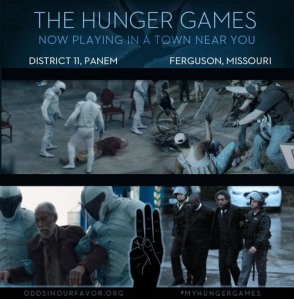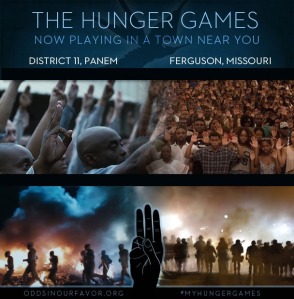Life Imitates Art, Imitates Life
As man evolved, so did his methods of communication. From pictures to spoken word, and finally writing, the power of words have never been lost on the human race. With the ability to evoke emotion in all who digest it, the strength in words is not to be taken lightly.
Feelings are very strong motivators that have sparked revolutions, pulled entire nations apart, and brought people closer together. One of the great things about words is the power they have to evoke such powerful emotions in all who read them.
The European ego is a prominent part of it’s history, and for good reason. The centralistic ideologies of Europeans helped to strengthen their political might and reach in the eyes of the government and it’s citizens. By constantly placing itself at the forefront of all issues and happenings, Europe was able to maintain a hold on it’s peoples, a technique still mirrored in North America today.Enter any American public school, and one could safely bet that the subject matter being covered for the day would be American-centric. Everything from science and politics, to history and art are taught from a Anglo-Saxon point of view. Small lapses in detail and careful word choice, seemingly harmless at the time, were able to win over millions of people for centuries on end, revealing the true power of words.
Citizens, not entirely lost on the advantage held by their leaders, began to take matters into their own hands, penning leaflets and short stories that sparked revolutions against their oppressors. Governments, angered at this, began to both ban these texts, some taking it so far as to burn them on sight. The fear rulers felt at an educated population encouraged residents to continue making and circulating them, eventually contributing to the rise in democratic society.
Walter Ong writes on viewing writing as a technology and it’s positive benefits in Writing is a Technology that Restructures Thought, stating “Technologies are not mere exterior aids but also interior transformations of consciousness…[that when] properly interiorized, [do] not degrade human life but on the contrary enhance it” Due to the close ties cultural change holds with technological advancement, it comes as no surprise just how much our dependence on it has grown.
Even today, nations fighting for their civil rights turn to literature in the hopes of finding inspiration and support for their cause. The Hunger Games, a trilogy penned by Suzanne Collins, follows the life of Katniss Everdeen, a teen who leads a civil revolt against the current oppressive regime. Mocking Jay, the third and final instalment in the series, focuses on the last stand between the Capitol, where the elite and government officials reside and the rest of Panem.
Katniss, in retaliation to threats made by President Snow against her home town, states “If we burn, you burn with us.”
This moment, captured in the Mockingjay trailer, was found spray painted on an arch in Ferguson, Missouri after the failure to indict officer Darren Wilson. This line, a powerful sentence written as both a threat and assertion of power, strikes a cord with Ferguson residents currently feeling dehumanized and unlawfully punished by local police. The ‘we’ in this phrase shows the solidarity of the community with Mike Brown’s parents.
On the other side of the world, Thailand currently stands under the control of hostile military government and anti-junta forces. Protestors have adopted Katniss’ rebellious 3 finger salute as a symbol for their movement. Closer to home, minimum wage workers on strike for higher wages, have been seen using the hand gesture at sit-ins in McDonalds and Walmarts across the United States. (CNN)
The Hunger Games is not the only piece of literature that has inspired revolt. In 2008, social justice hacker group Anonymous adopted the mask of Guy Fawkes, as their cover in public protests. (Hypable) The mask originates from V for Vendetta, a comic turned film that follows Fawkes’ journey in the liberation of a corruptly fascist Great Britain.
Uncle Tom’s Cabin, written in 1852, had Abraham Lincoln calling Hamet Beecher Stowe, a character in the book, “the little woman who started” the civil war 10 years later. The novel showed the stark reality of slavery, something most did not care to think of at the time. Stowe’s words inspired others to join abolitionist movement, bringing the trafficking of human workers to an end at a time where most thought it an impossible task.
Les Miserables, a novel by Victor Hugo and later famed musical, spawned one of the most popular songs, “Do you hear the people sing?”. Students holding pro-democracy rallies in Hong Kong have taken the song as the anthem, mirroring their struggle towards freedom with that of the french in the 1800s.
“Life imitates art, imitates life.” The world holds onto famed literature as a way to express their oppression, while, simultaneously, literature acts as a mirror to the current state of the world. Social media sites such as Twitter and Tumblr have been quick to equate the situation in Ferguson to that of Panem in The Hunger Games. Below, images from the latest film (left) are directly compared to images from Ferguson, Missouri (right). The similarities are striking.
A blockbuster of massive proportions, people have seen the chance to use that popularity as a space in which to fill real life events. Odds in our Favour, a website geared towards fans of the Hunger Games franchise, seeks to help fans take their love for the series, and anger towards the injustice it follows, and channel it into acts of social change in the real world. Tag lines such as “These are our Hunger Games” and the trending of #MyHungerGames show just how powerful literature, fictional or otherwise, can have in the act of real life change.
J.K. Rowling, author of the infamous Harry Potter series, uses the tense dynamic between magical creatures and magical races in her books to act as metaphors for racist acts seen in everyday life. Critics condemn Rowling for her use of metaphors, claiming the leap necessary to make connections to life lead to the loss of the message. Contrary to this, the initial ambiguity of tensions between pure blood wizards (offspring of magical parents) versus muggle borns (wizards born from normal parents), and the overall treatment of werewolves and goblins by magical society act as a very powerful tool for the educating of readers about larger systems of discrimination, particularly for young readers.
Heavy books dealing with social issues tend to be difficult reads, repelling both young and casual readers alike. In fantasy lands, everything is accepted without question. Pieces of wood posses magical qualities, one can posses immortal power through the simple process of splitting the soul, and learning the art of teleportation from point A to B is a right of passage akin to that of gaining one’s driver’s licence. Rowling cleverly uses this to her advantage, giving her characters situations that, upon closer inspection, can be related to the struggles felt by minorities. Remus Lupin’s status as a poor outcast is directly linked to his being a werewolf. Though there are medical advancements to control his wolfish tendencies, he remains a reject. This struggle can be related to those suffering from HIV/AIDS in 1999, the time of the third book’s release. The Malfoys, a pureblood family laden with old money, is a more obvious link to the class and race hierarchy present in western society. Goblins work the banks of the wizarding world. They are attributed to being the best steel workers, clever minded, and possessors of strong magic. Despite all this, they are constantly looked down upon, something that most immigrant workers can relate to.
Reading about the trials and tribulations of our favourite characters, and seeing that they mirror those of our own, builds a special connection. This empathetic bond is why people chose to use fictional situations to help understand their own. Initiative like the Harry Potter Alliance, founded in 2005, work to mobilize fans of popular books, movies, TV Shows to advocate for important causes in the real world.
Literature’s stance as a powerful symbol for social justice is not lost on oppressors. President Snow in Suzanne Collin’s Hunger Games stresses the need to destroy all symbols of rebellion, fearing the meaning and power they posses. This destructive sentiment can be seen in the real world today. Thailand, after adopting the 3 fingered salute as their symbol of opposition to the May 22nd military coup, had it banned by the Junta later that month. Even the release of the film Mockingjay was delayed both in both Thailand and China, each country providing no context as to why.
The wrecking of social justice symbols could not be possible without media. Throughout the series, The Hunger Games has always had large political themes. With the Capitol killing innocent people, the president authorizing the bombing of hospitals full of unarmed people, strategic starving and propaganda driven brainwashing of it’s citizens, Collin’s has penned novels with multiple engaging themes. Despite all this, the main focus of media outlets over the past three premiers has revolved around one plot point: Gale or Peeta? A love triangle revolving around the heroine is the least of her troubles which she fully admits to when fighting in her districts civil war. Despite Mockingjay focusing so little on Katniss’ love interest, the media continues to make it their only talking point, pointedly ignoring the large issues, media’s involvement in spreading propaganda one of them, at hand in the film.

“In our culture, even when you’re making movies about the fight against structural class inequality, if there’s a profit to be made, message be damned.” (LA Times)
Looking past The Hunger Games, Hollywood has managed to put their sickly touch on every project with even remote promise. Rooney Mara, a young caucasian girl, has been cast as Tiger Lilly, a Native princess in Warner Brother’s adaptation of Peter Pan. Exodus, a movie centred around the story of Moses, set in Egypt, has cast not a single Egyptian, or African for that matter, in lead roles. Removing key elements from these infamous stories, thinking it will remove the important discussion they spark, and with the hope that no one will notice, is a foolish one. Many bloggers, independent new outlets, and every day social media users have pointed out and commented on these casting discussions, all asking the same question: why?



